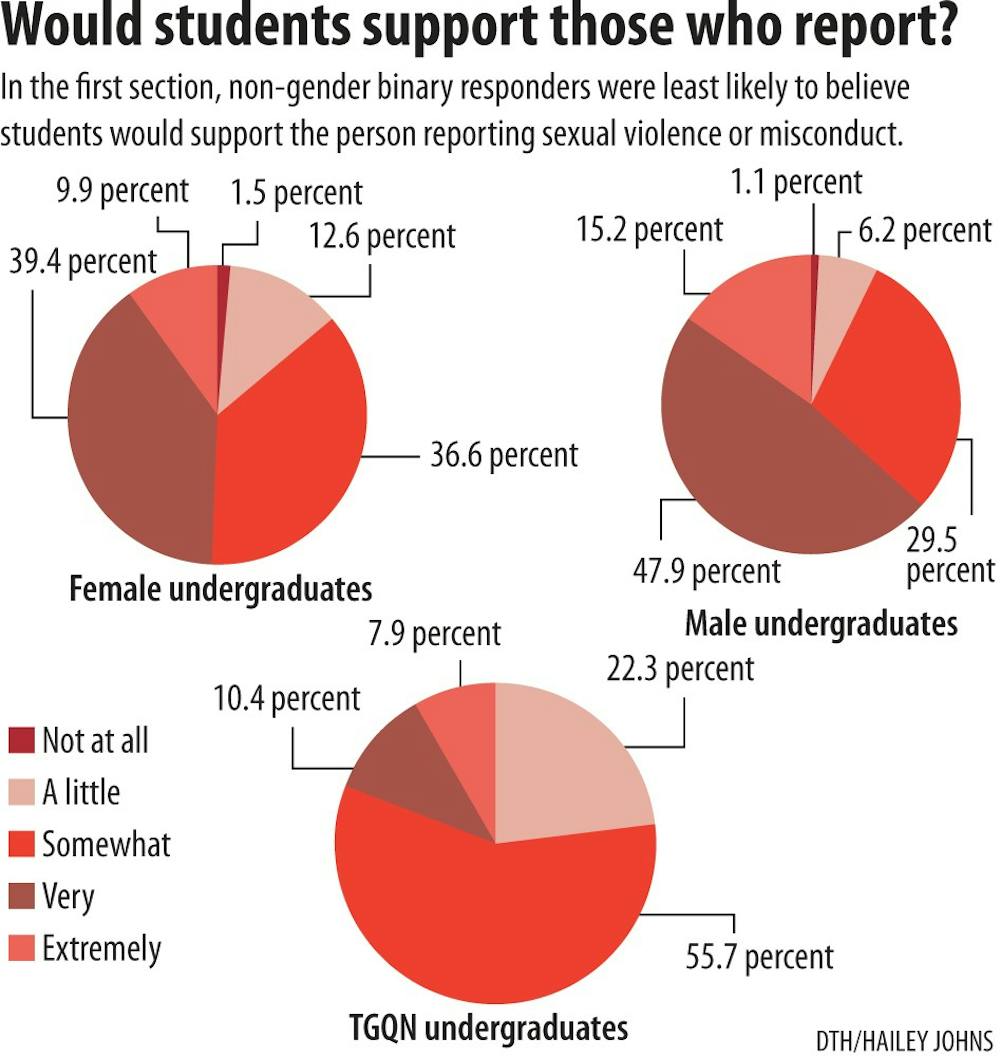When surveyed, 24.3 percent of female UNC undergraduates participating in the Association of American Universities’ Campus Climate on Sexual Assault and Sexual Misconduct indicated they had experienced sexual assault since enrolling.
“It gives us a baseline of information that will help us refine and reform our prevention efforts,” said Felicia Washington, the vice chancellor for workforce strategy, equity and engagement. “I don’t think we’re ever going to be satisfied until we are at zero incidents and 100 percent prevention.”
UNC chose to participate in the study in April, along with 26 other institutions across the country. The survey asked questions about prevalence, perception of risk, bystander intervention and awareness of resources. The surveyors invited 28,353 students enrolled at UNC to participate in the study; a total of 5,212 completed it — a response rate of 18.4 percent.
Of UNC survey participants of all genders, 12.9 percent claimed to have experienced at least one behavior considered to be sexual assault, which the survey defined as any of these non-consensual activities: sexual touching through physical force or through incapacitation due to drugs or alcohol, completed penetration by physical force, completed penetration by incapacitation and attempted penetration by force.
Of female participants from UNC, 57.1 percent said they didn’t report an incident to the University or law enforcement because they felt it was not serious enough.
Student Body President Houston Summers said the University can better handle cases to lower the percentage.
“Survivors need to know that their case will be dealt with seriously and that they will be supported through it, and they should feel comfortable coming forward,” Summers said.
Christine Allison, of UNC Survivors Collective, said the percentage of students who didn’t formally report is important, and other numbers like the 74.1 percent of students who said they were knowledgeable about where to get help shouldn’t encourage complacency.




